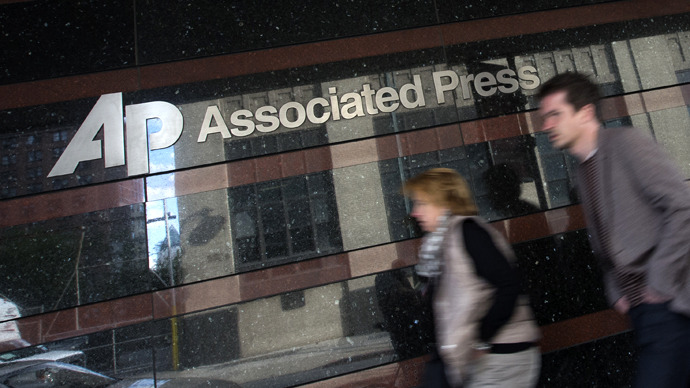To uncover the source behind the New York Times article that exposed Obama’s order of cyber-attacks on Iran, the FBI seized phone and email logs from the White House, defense department and intelligence agencies, the paper revealed.
New York Times journalist, David E. Sanger, was at the center of an investigation by the domestic security service to find out who leaked information to the press when he published a June 2012 article entitled ‘Obama Order Sped Up Wave of Cyberattacks Against Iran,’ which explored US attacks on Iranian nuclear enrichment facilities.
Although he wasn’t the primary focus of the official
investigations, as with recent Associated Press and Fox News cases,
agents subjected officials to interrogation who had contact with
him prior to the article’s publication, two people familiar with
the investigation told the newspaper.
These ‘unprecedented’ levels of investigation have led to six
prosecutions and many more aggressive inquiries, according to the
paper.
“For every reporter that is dealing with this, there are hundreds of national security officials who feel under siege — without benefit of a corporate legal department or a media megaphone for support,” a former Obama administration official told NYT.
After a security agency comes by information in the news that they consider could only come from official sources, a “Crimes Report” is filed by officials, after which FBI agents set off to find the leaker, aided by recent technological developments in the distribution and access of information.
This exposure shortly follows two scandals exposing the extent of scrutiny US journalists are put under. Within the last week it emerged that James Rosen, Fox News's chief Washington correspondent, had a 44-page application for a search warrant filed against him, including for his personal emails, after publishing a report based on leaked security information in June 2009.
This news itself had caused a stir as it had been exposed in the
fallout of a scandal surrounding the US Department of Justice’s
wiretapping of Associated Press journalists, seizing two month
worth of telephone records. AP’s president, Gary Pruitt, called the
ongoing monitoring a “massive and unprecedented intrusion,”
in a letter of protest to the US attorney general.
He later underscored the impact that the investigations were
beginning to have on journalists’ abilities to report
effectively.
“Officials that would normally talk to us and people we talk
to in the normal course of news-gathering are already saying to us
that they are a little reluctant to talk to us. They fear that they
will be monitored by the government,” he said.
Of additional concern is the fact that the “latest revelations indicate that reporters’ communications are now fair game,” Steven Aftergood, who directs a project on government secrecy for the Federation of American Scientists, told the paper.
Responding to the accusations that government violates
journalists’ constitutional rights, President Obama during his
speech on counter-terrorism policy on Thursday said that he is
“troubled by the possibility that leak investigations may chill the
investigative journalism that holds government
accountable.”


